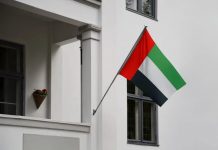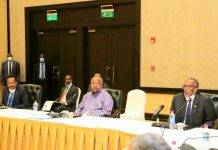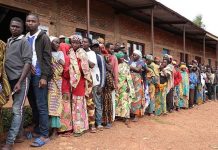Mogadishu (UM) – On International Women’s Day, many interviewed by the UM feel that the issue of women’s rights is not a top priority for the Somali government and society. Instead, most interviewees felt marginalized even those working in the public sector where rights are clearer.
“Women’s rights is not the number one priority and it can’t be at the moment we understand because of security and poverty but empowering women is important for achieving these,” said Asha Mohamed, a school teacher in Mogadishu.
“The problem is that women are still tolerated and not empowered in Somali culture and they are marginalised,” added Nura Ege another teacher. “We can be trusted to look after the children but not make the big decisions.”
The women interviewed argued that politics, business and the security sector are dominated by men who do not give women a chance to enter these fields and play a leading role. There was hope that the 30% quota for women MP’S in the last election would have changed the political landscape, but most interviewees did not feel this way.
“The 30% women quota was not reached and the MP’s that did come through were all privileged and connected. Very few real Somali women representatives were elected,” said Anab Maalin, a small business owner in Bakara market. “Most of the women MP’s don’t know the real issues facing us in Somalia.”
Most of the women were even more critical of the private sector which they saw to be very discriminatory.
“The big Somali companies do not like to hire women no matter how educated. In an interview I was told I was a good candidate but since I was going to get married and have children, I should bring a male relative to work in my place to support the family by a big Somali company,” recalled Saadia Ali who is unemployed after graduating with a degree in Business studies. “This is normal in Somalia and I am not the only women who experienced this.
UM spoke to a private sector recruitment officer who spoke on the condition of anonymity and verified Saadia’s claim.
“Most of these private sector businesses are family owned and they prefer men because they are more reliable and are expected to support their families. Therefore, businesses feel they can control them more than women,” said the recruitment officer. “Men do not get married, give birth and are seen by the business owners as easy to incentivise and manage.”
The difficulty for equality for women in Somalia is not just coming from men. Many women felt that they were the real obstacles to challenging the status quo.
“Women are always in competition and focused on each other than the structures that hold them back in Somalia. Somali women have become too individualistic and the ones at the top are not helping the rest,” said Sahra Ahmed, a feminist activist. “Our enemy is within.”
“How many women MP’s do you see fighting for women’s rights? Most of these MP’s only care about their positions and giving advantages to their children and friends,” said Hibo Aden, a university student. “The appointment of the highest number of women Ministers did not help women at all.”
Another issue that kept appearing is the challenge between Diaspora and local women. Most of the local women felt that the Diaspora had taken all the privileges and left them with little.
“In politics, business, public sector jobs, international recruitment and even marriage, the Diaspora are robbing the local women,” said a local government employee who did not want to be named. “It is not always about qualifications but culture and confidence to mingle with men and international donors and agencies.”
Most of the interviewees felt that International Women’s Day itself was a social construction which without real political will means nothing. They all agreed that the Somali government has other priorities to stabilize the country and women’s role is not always appreciated. However, they also agreed that women have to be united and better organised to fight for their rights and play a leading role in Somalia against the backdrop of a culture of marginalization.



























